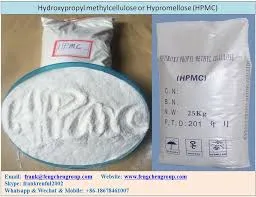
Aug . 14, 2024 22:18 Back to list
Exploring Advanced Applications and Innovations in HPMC 4000 for Pharmaceutical Formulations and Beyond
Exploring HPMC 4000 A Versatile Polymer in Modern Applications
Hydroxypropyl Methylcellulose (HPMC) is a cellulose derivative that has gained considerable attention across various industries due to its remarkable properties and versatility. Among the different grades of HPMC, HPMC 4000 stands out for its unique characteristics, making it a preferred choice for many applications.
.
The use of HPMC 4000 extends beyond the pharmaceutical realm. In the food industry, it serves as a thickening and stabilizing agent. Its inclusion in food products helps improve texture and mouthfeel, making it easier to achieve desired product characteristics. HPMC is commonly found in gluten-free baking recipes, where it mimics the structure and elasticity provided by gluten, resulting in improved bread quality. As consumers increasingly seek gluten-free alternatives, HPMC 4000 has become an essential ingredient in the formulation of gluten-free products.
hpmc 4000

The cosmetic and personal care industry has also embraced HPMC 4000 for its film-forming and thickening properties. It is often incorporated in lotions, creams, and other formulations to enhance consistency and stability. Due to its biocompatibility and gentle nature, HPMC 4000 is particularly suited for sensitive skin products, providing a luxurious feel without causing irritation.
HPMC 4000 plays a significant role in the construction industry, where it is used as an additive in cement and gypsum-based products. When mixed with water, HPMC 4000 improves workability and increases the adhesive strength of mortar and plaster. This leads to better application and enhanced durability of construction materials. Additionally, HPMC helps to retain moisture during the curing process, promoting optimal hydration and ultimately contributing to the structural integrity of the finished product.
As environmental considerations gain prominence, biopolymers like HPMC are becoming more attractive for sustainable practices. Derived from natural cellulose sources, HPMC 4000 is biodegradable and does not pose significant environmental threats compared to synthetic polymers. Its wide range of applications, combined with its environmentally friendly profile, positions HPMC 4000 as a key player in the development of sustainable products.
In conclusion, HPMC 4000 is a versatile polymer that has found its place in various industries, including pharmaceuticals, food, cosmetics, and construction. Its unique properties, such as water solubility, thickening ability, and biocompatibility, make it a valuable ingredient in a myriad of applications. As industries continue to innovate and seek sustainable solutions, HPMC 4000 is likely to play an increasingly important role in formulating products that meet both performance and environmental expectations. The future undoubtedly looks promising for this remarkable polymer.
-
Versatile Hpmc Uses in Different Industries
NewsJun.19,2025
-
Redispersible Powder's Role in Enhancing Durability of Construction Products
NewsJun.19,2025
-
Hydroxyethyl Cellulose Applications Driving Green Industrial Processes
NewsJun.19,2025
-
Exploring Different Redispersible Polymer Powder
NewsJun.19,2025
-
Choosing the Right Mortar Bonding Agent
NewsJun.19,2025
-
Applications and Significance of China Hpmc in Modern Industries
NewsJun.19,2025







